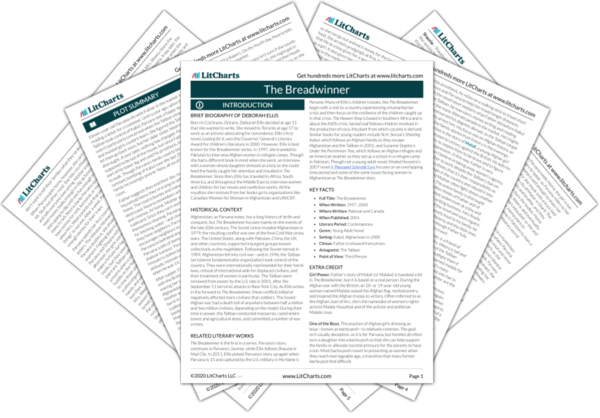Father is well educated, so his ideas represent a kind of free-thinking, broad-minded Afghanistan that the Taliban sees as a threat. Parvana’s choice to fling herself at the soldiers makes it clear that she is, above all else, loyal to her family and willing to put herself in danger to protect people she loves. Especially given how snippy she and Nooria have been, it’s important to see her dedication to saving Father. It suggests that when things get rough, Parvana will rise to the occasion to protect family members and the kind of Afghanistan she wants to live in—as represented by the books.


